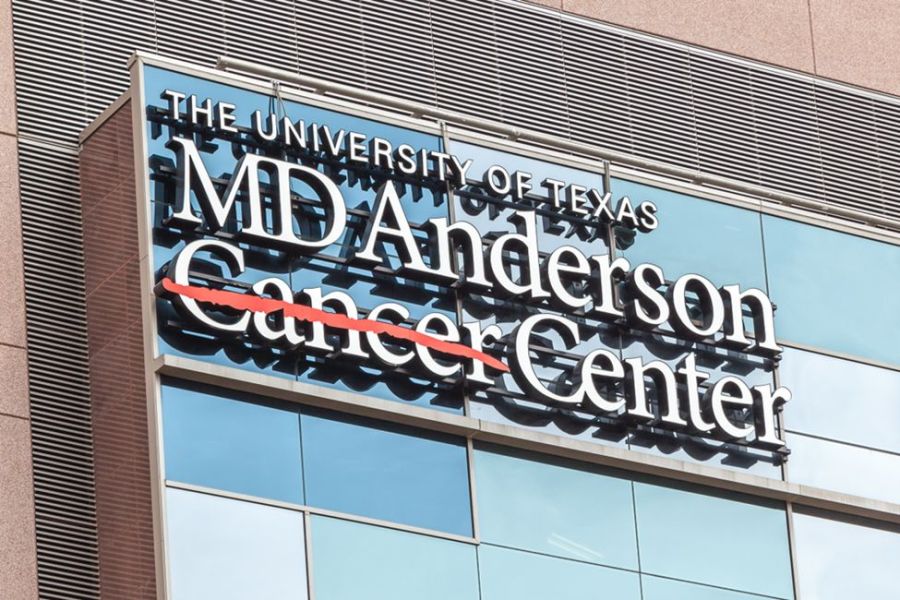The University of Texas MD Anderson Cancer Center has renamed one of its pivotal research facilities in profound recognition and gratitude of the Belfer Family. The South Campus Research Building 4, a cornerstone of MD Anderson’s scientific endeavors, is now known as The Robert A. and Renée E. Belfer Research Building. This renaming marks a significant milestone in the longstanding partnership between MD Anderson and the family, whose contributions are invigorating neurodegeneration research and helping transform the landscape of medical discovery.

That’s good news for the estimated 6.9 million Americans age 65 and older currently living with Alzheimer’s disease, according to the Alzheimer’s Association. By 2050, it’s estimated that there will be 13.8 million people living with Alzheimer’s disease dementia.
The Belfer family’s connection with MD Anderson spans over a decade and is characterized by unwavering dedication to advancing the understanding and treatment of neurodegenerative diseases, particularly Alzheimer’s disease. The family has made transformative philanthropic investments totaling $53.5 million; their latest donation of $20 million reinforces their commitment to strengthening neurodegeneration research, specifically through the Belfer Neurodegeneration Consortium.
“Yet, we still have more work to do. Alzheimer’s disease is already the most expensive disease in the United States. As our population continues to age, addressing quality-of-life issues and other challenges of treating and living with age-associated diseases must become a priority,” stated Jim Ray, Ph.D., executive director of the Belfer Neurodegeneration Consortium.
What Is the Belfer Neurodegeneration Consortium?
The BNDC, established in 2012, is a collaborative initiative between MD Anderson and esteemed institutions including the Massachusetts Institute of Technology, Icahn School of Medicine at Mount Sinai, UT Health San Antonio, NYC Grossman School of Medicine, and Baylor College of Medicine. This consortium actively works to understand neurodegenerative diseases and turn important discoveries into treatments.
The significance of the Belfer family’s contributions extends far beyond the walls of research laboratories. Their philanthropic endeavors empower scientists, clinicians, and drug development experts to pioneer innovative solutions and confront the formidable challenges posed by Alzheimer’s disease. Moreover, their generosity underscores a shared commitment to enhancing the quality of life for aging adults and future generations.
MD Anderson’s research prowess is unparalleled. Its singular focus is eradicating cancer and advancing patient care, education, and prevention initiatives. While renowned for its groundbreaking achievements in oncology, MD Anderson’s foray into neurodegeneration research represents a paradigm shift, reflecting its adaptive and holistic approach to tackling complex medical issues.
Belfer Family’s Vision: Cancer Neuroscience and Neurodegeneration Research
Cancer neuroscience and neurodegeneration research convergence is poised to yield profound insights and therapeutic breakthroughs with far-reaching implications. The BNDC’s interdisciplinary approach, combined with MD Anderson’s extensive clinical trial expertise and translational capabilities, positions the institution at the forefront of medical innovation. This synergistic collaboration has the potential to transform the treatment landscape for neurodegenerative diseases and enhance the understanding of the intricate interplay between neurological disorders and cancer.
As the global population gets older and the prevalence of neurodegenerative diseases continues to rise, the imperative to confront these challenges head-on becomes increasingly urgent. MD Anderson’s steadfast commitment to excellence heralds a new era of hope and possibility in the fight against Alzheimer’s disease and related disorders.
As Robert A. Belfer explained at the founding of the BNDC, “The aim is to translate research findings into effective targeted drugs and diagnostics for patients while addressing quality of life issues and the financial challenges of treating and living with Alzheimer’s and other aging diseases.”
An aging population presents society with escalating medical expenses. Belfer said, “To enhance the quality of life in later years, as well as reduce costs, we need a national effort. Recent advances in medical technology pave the way for this progress. My hope is that this project, which brings together three of the world’s leading medical research centers, will be a meaningful and much-needed step in advancing this urgent national problem.”
Navigating the Complexities: Challenges in Neurodegenerative Disease Research and Treatment
The fight against neurodegenerative diseases presents formidable challenges and obstacles that continue to impede progress in research and treatment. One significant challenge is the presence of ongoing research gaps, where critical aspects of disease pathology and progression remain poorly understood. Despite significant advancements in our understanding of neurodegeneration, there are still many unanswered questions surrounding the underlying mechanisms and risk factors associated with diseases including Alzheimer’s, Parkinson’s, and Huntington’s.
Moreover, funding constraints pose a significant barrier to conducting comprehensive research and developing effective therapies. Neurodegenerative diseases often require long-term, interdisciplinary approaches that demand substantial financial resources.
Translating scientific discoveries into clinical practice is another complex challenge facing the field of neurodegeneration. While promising findings may emerge from preclinical studies or early-phase clinical trials, successfully translating these discoveries into tangible treatments that improve patient outcomes requires rigorous regulatory approval processes. Additionally, the heterogeneity of neurodegenerative diseases and the variability in patient responses to treatment further complicate the development and implementation of personalized therapeutic interventions.
Addressing these challenges requires sustained investment in research, collaboration between academic institutions, industry partners, and government agencies, and a commitment to innovation and interdisciplinary approaches. By overcoming these obstacles, researchers and clinicians can accelerate progress in understanding neurodegenerative diseases and develop novel strategies for prevention, diagnosis, and treatment, ultimately improving the lives of millions of individuals affected by these devastating conditions.

Founder Dinis Guarda
IntelligentHQ Your New Business Network.
IntelligentHQ is a Business network and an expert source for finance, capital markets and intelligence for thousands of global business professionals, startups, and companies.
We exist at the point of intersection between technology, social media, finance and innovation.
IntelligentHQ leverages innovation and scale of social digital technology, analytics, news, and distribution to create an unparalleled, full digital medium and social business networks spectrum.
IntelligentHQ is working hard, to become a trusted, and indispensable source of business news and analytics, within financial services and its associated supply chains and ecosystems











